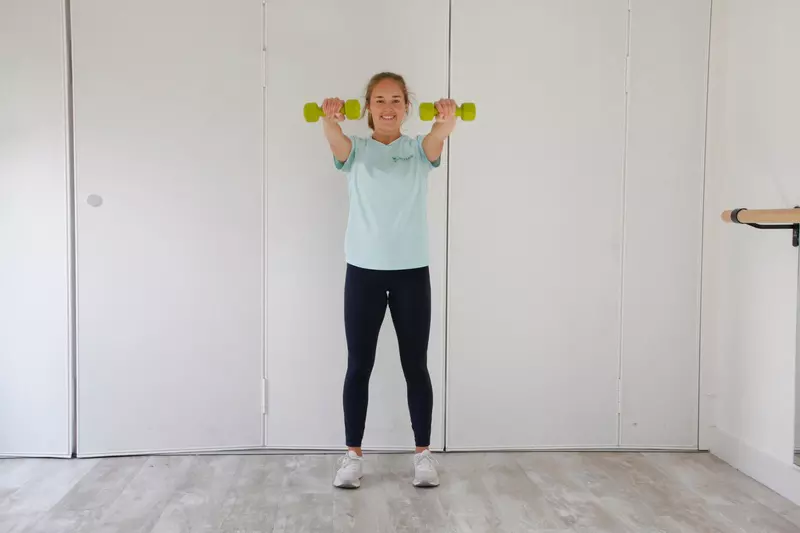Getting to know...a Parkinson's exercise class instructor
Beth Boxall is a clinical exercise specialist and runs Bounce Back Exercise, an exercise class for people living with Parkinson’s. We find out more about her work.
How did you get into your work?
While studying for my degree in Sport and Exercise Psychology at Loughborough University, I became interested in how certain exercises can benefit people with Parkinson’s.
I started Bounce Back Exercise 3 years ago, to create more education, opportunity and support for people to experience the benefits of being physically active.
Although physical activity and exercise may not be a cure for Parkinson’s, research shows that it can really help people manage the physical symptoms, as well as improve mood and mental health.
What can someone expect from a Parkinson's exercise class?
The Parkinson’s class I run is called PD Power, and it’s designed specifically for Parkinson’s symptoms. It lasts 45 minutes and focuses on coordination and balance, while improving cardiovascular and muscular strength.
We start off with a 15-minute warm-up, followed by rounds of ‘power’ exercises and balance challenges. We always finish things off with some stretches.
The aim of the class is to:
- reduce stiffness and improve mobility
- improve posture
- improve balance and gait (how you walk)
- increase oxygen to keep the heart, lungs and nervous system healthy
- reduce depression, stress and anxiety
- make exercise feel fun and sociable

Can anyone with Parkinson's join the class?
To get the most out of the class, you need to be able to move about unaided. That means without any support or help from equipment. But we have people at all different stages of Parkinson’s joining in the class and we have regular breaks to allow everyone in the group time to rest and sit down if needed.
If you have more complex symptoms, or have problems with your mobility, there are lots of different classes out there that offer seated alternatives.
Can family members and partners get involved?
Yes, we have partners and family members who also get involved in the class. PD Power is a great workout for everyone and getting family involved can help our participants stay motivated and make it more likely to practise their exercises at home.
What's your favourite thing about running the class?
It’s brilliant to hear that a client feels stronger, more in control of their body, more energised, and – best of all – happier.
Someone who attends PD Power went from being unable to lift a partially filled kettle to being able to get in and out of the bath again.
Although physical activity and exercise may not be a cure for Parkinson’s, research shows that it can really help people manage the physical symptoms, as well as improve mood and mental health.
What would be your tips for someone with Parkinson's to help them maintain their health and fitness levels?
I believe there’s no one-size-fits-all approach. Make sure to find a workout that challenges you, suits your physical needs, helps you to achieve your goals and most importantly, you enjoy.
My number one recommendation for someone starting out on an exercise programme would be to consider their reasons for exercising. Make a note of these, and maybe even stick them on the wall or fridge. It’s these reasons that will inspire you to keep going when times are tough.

